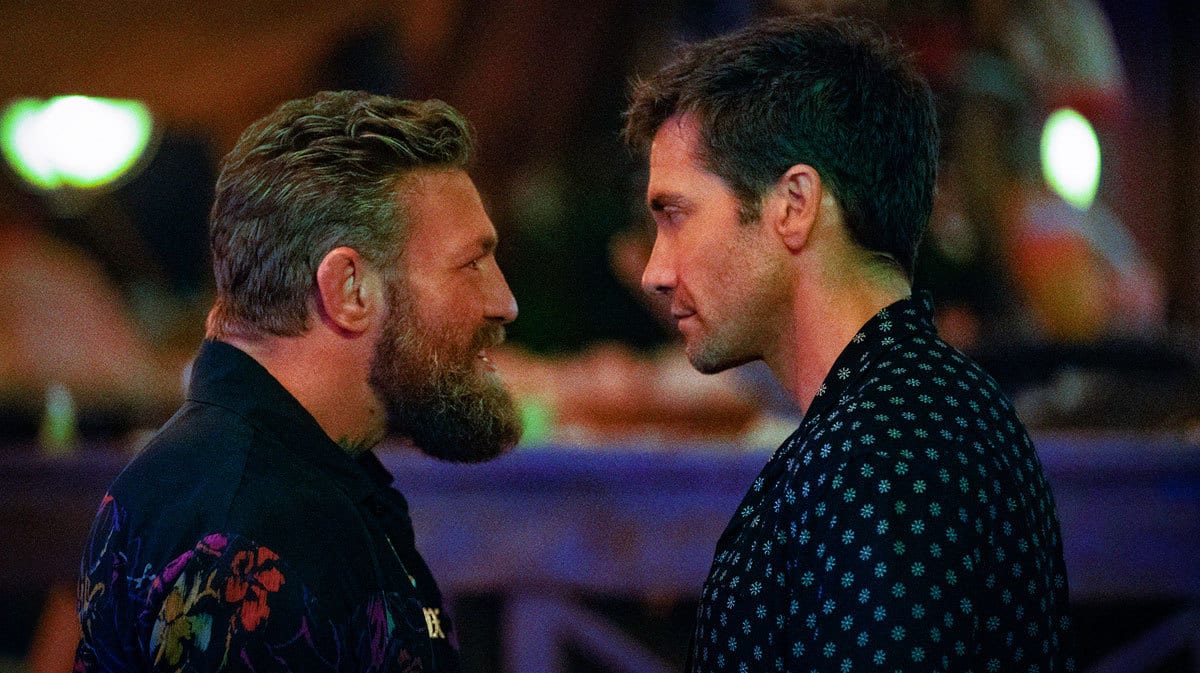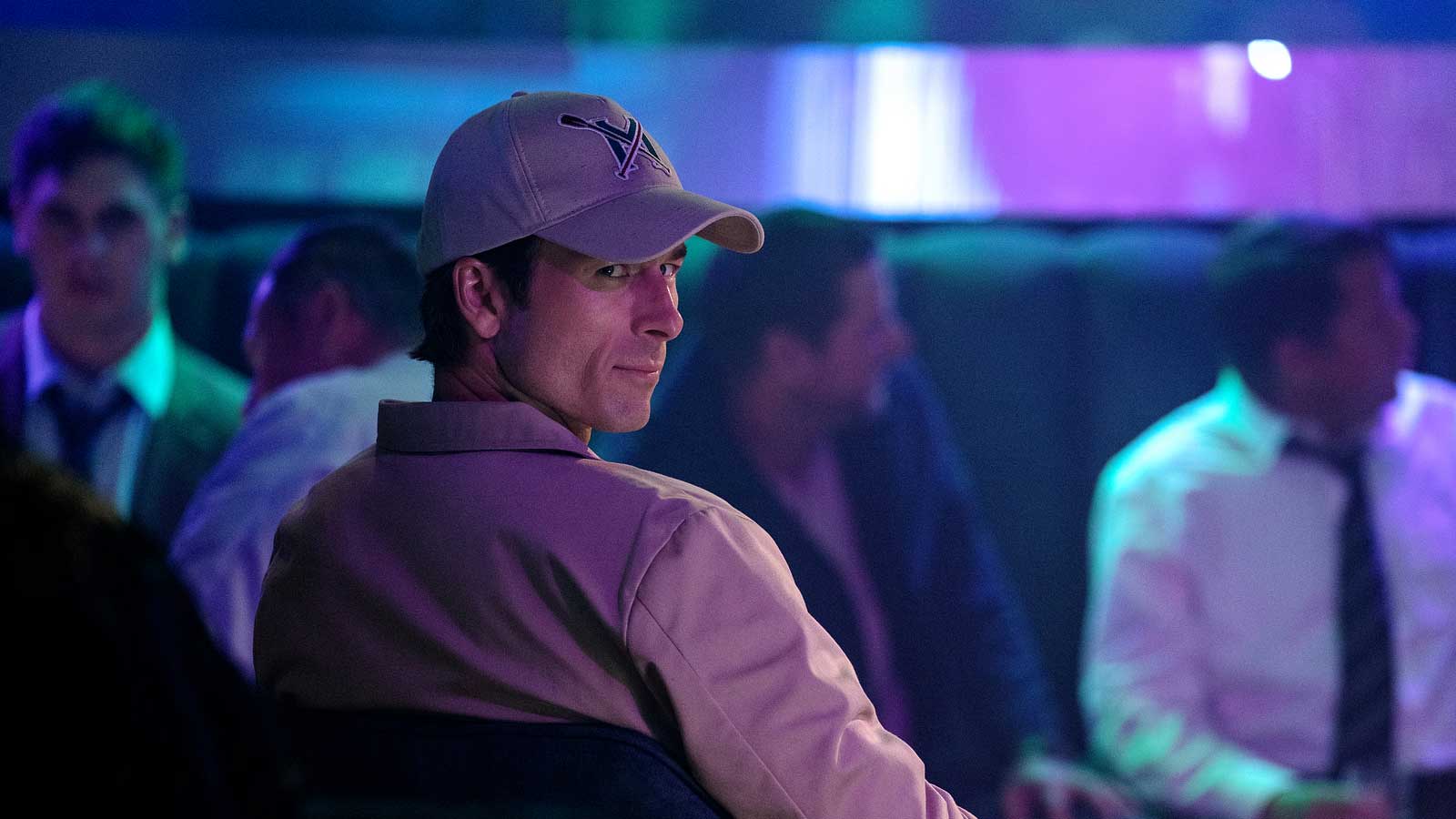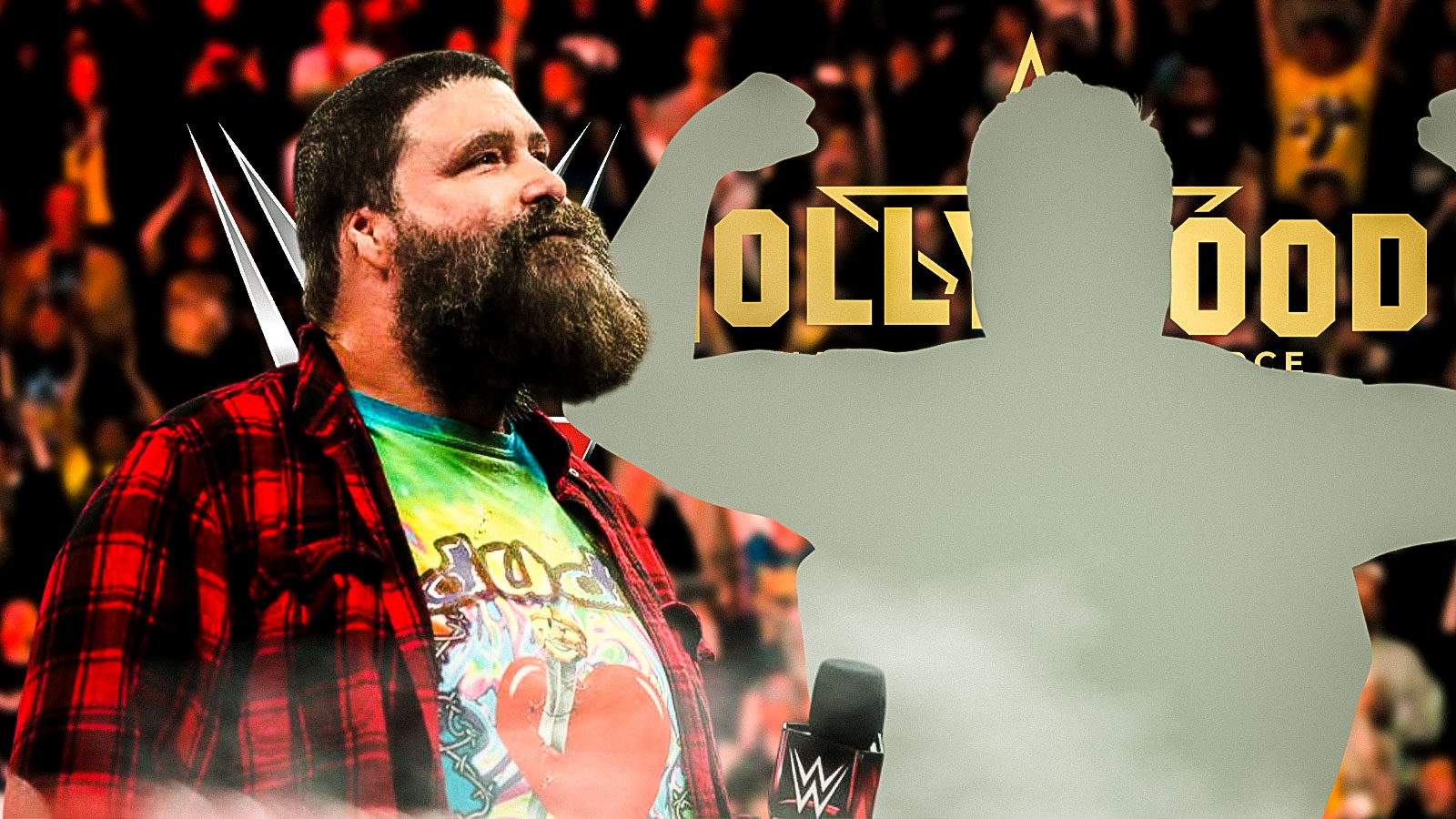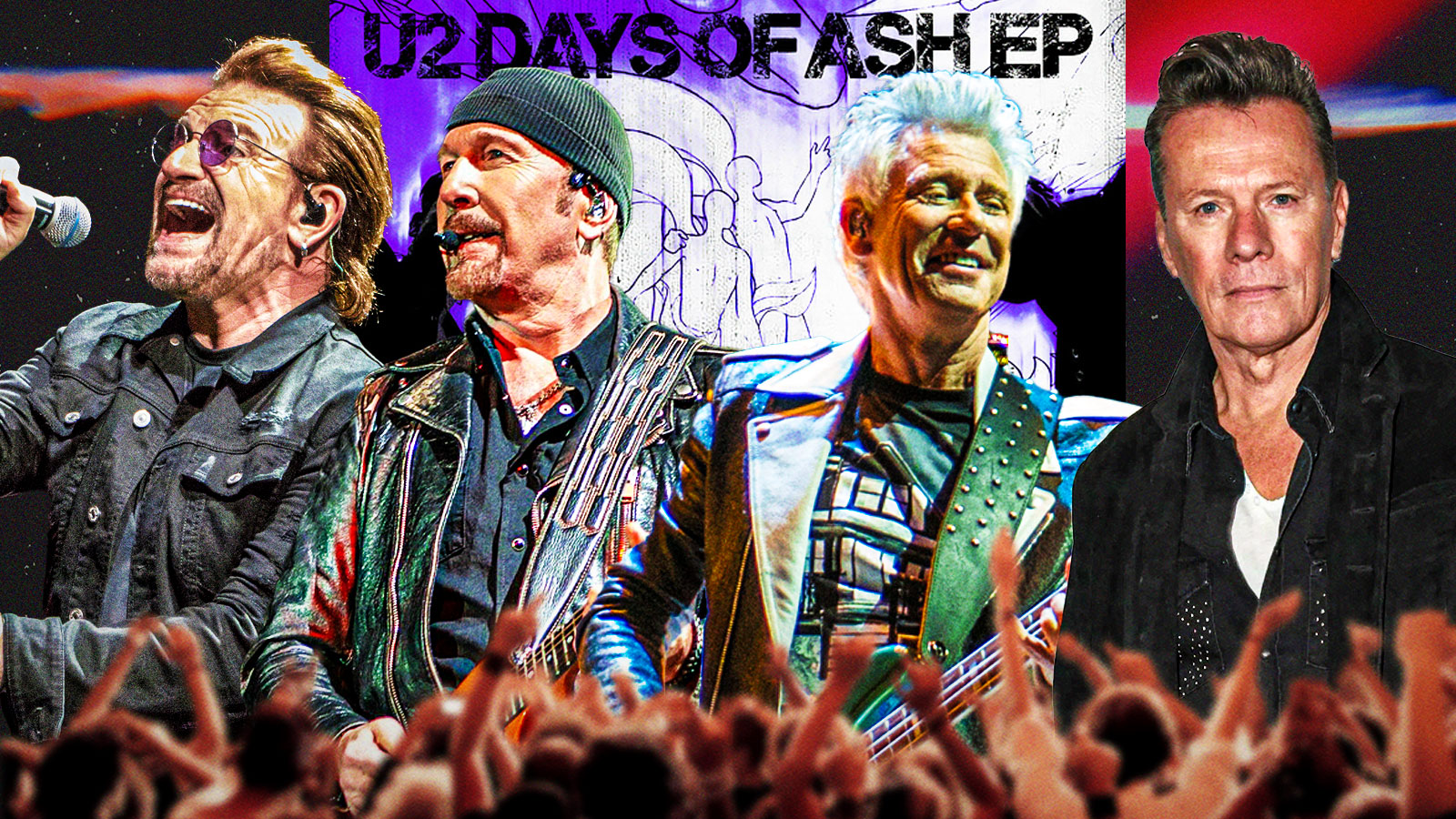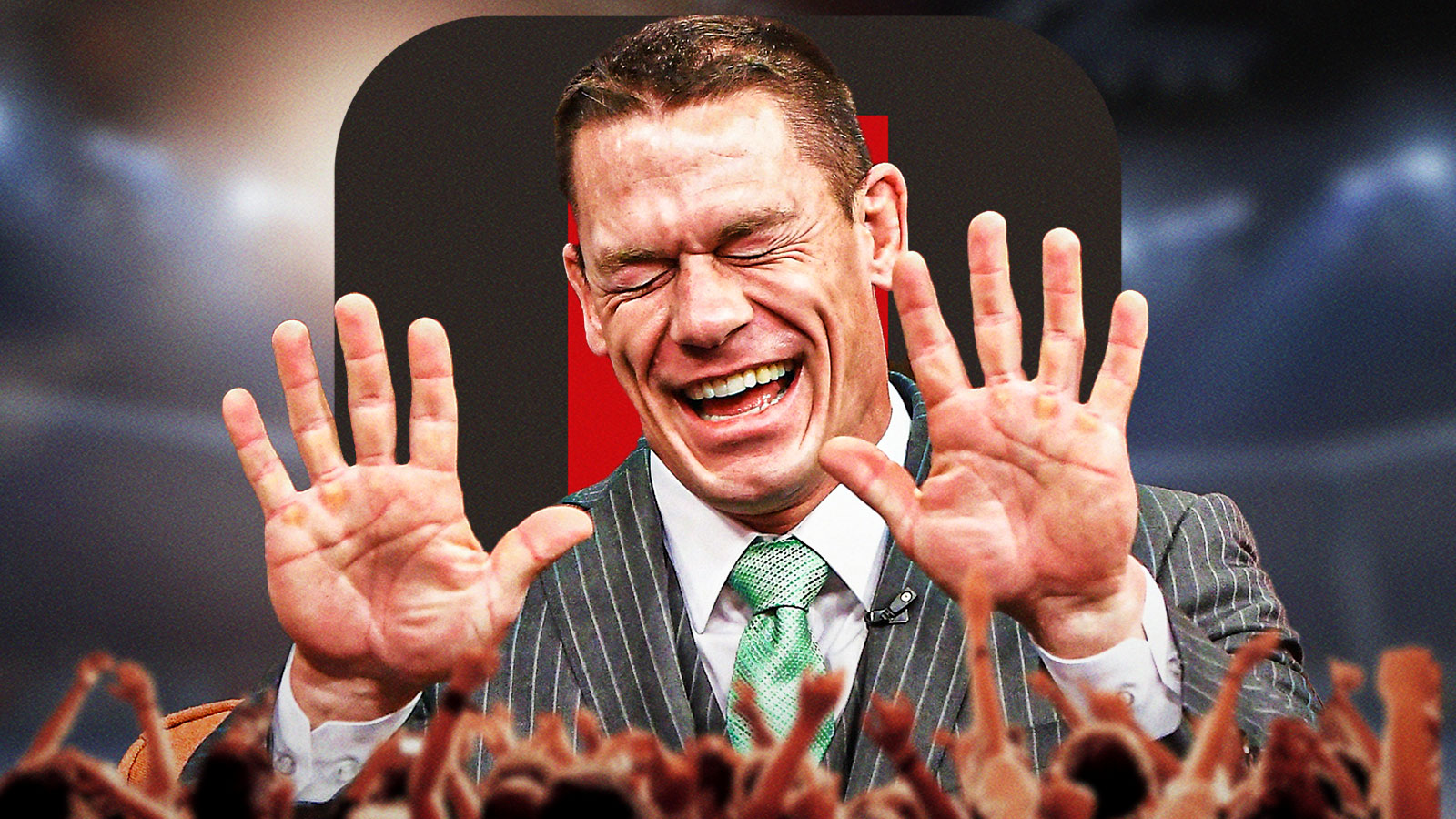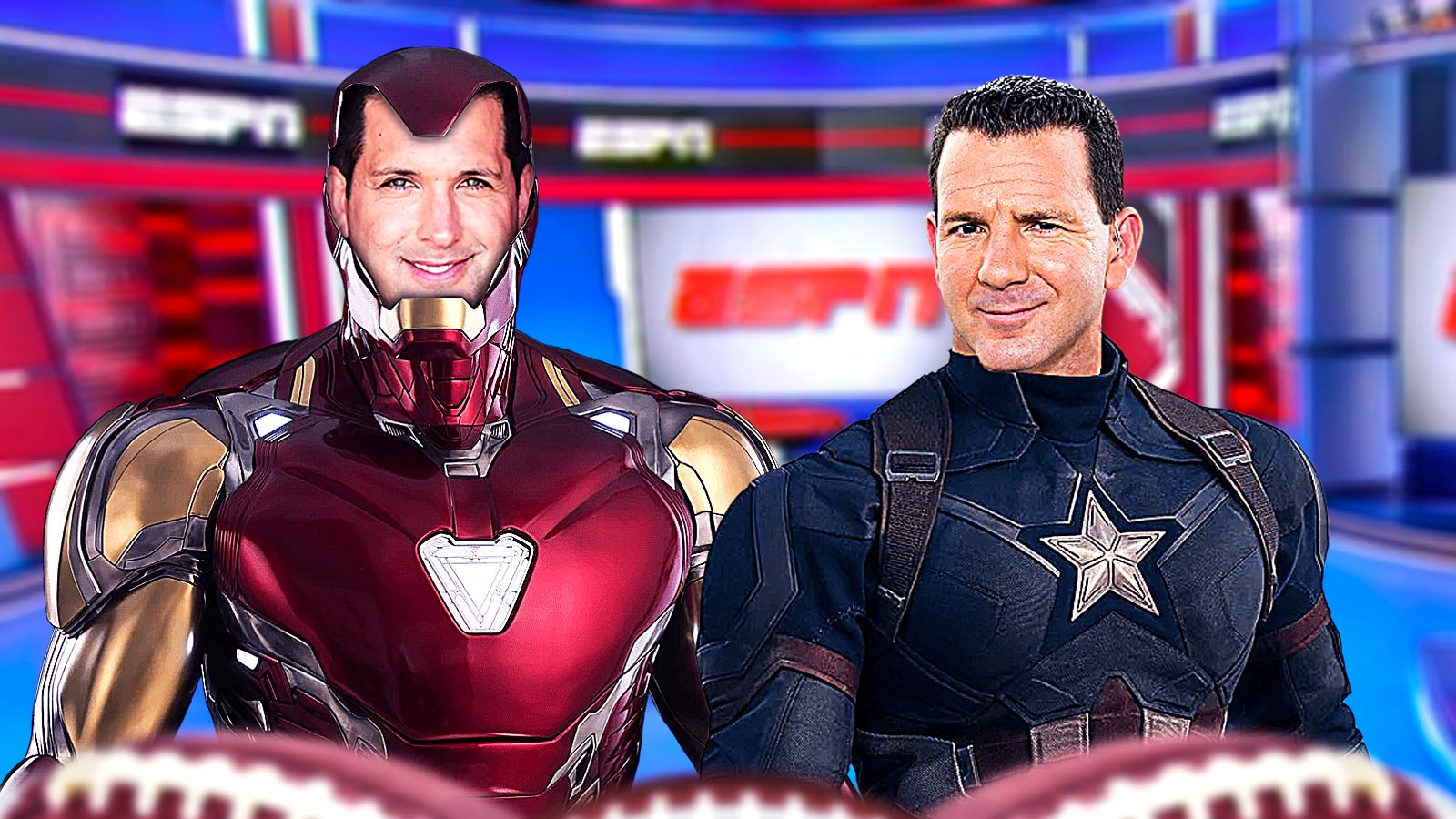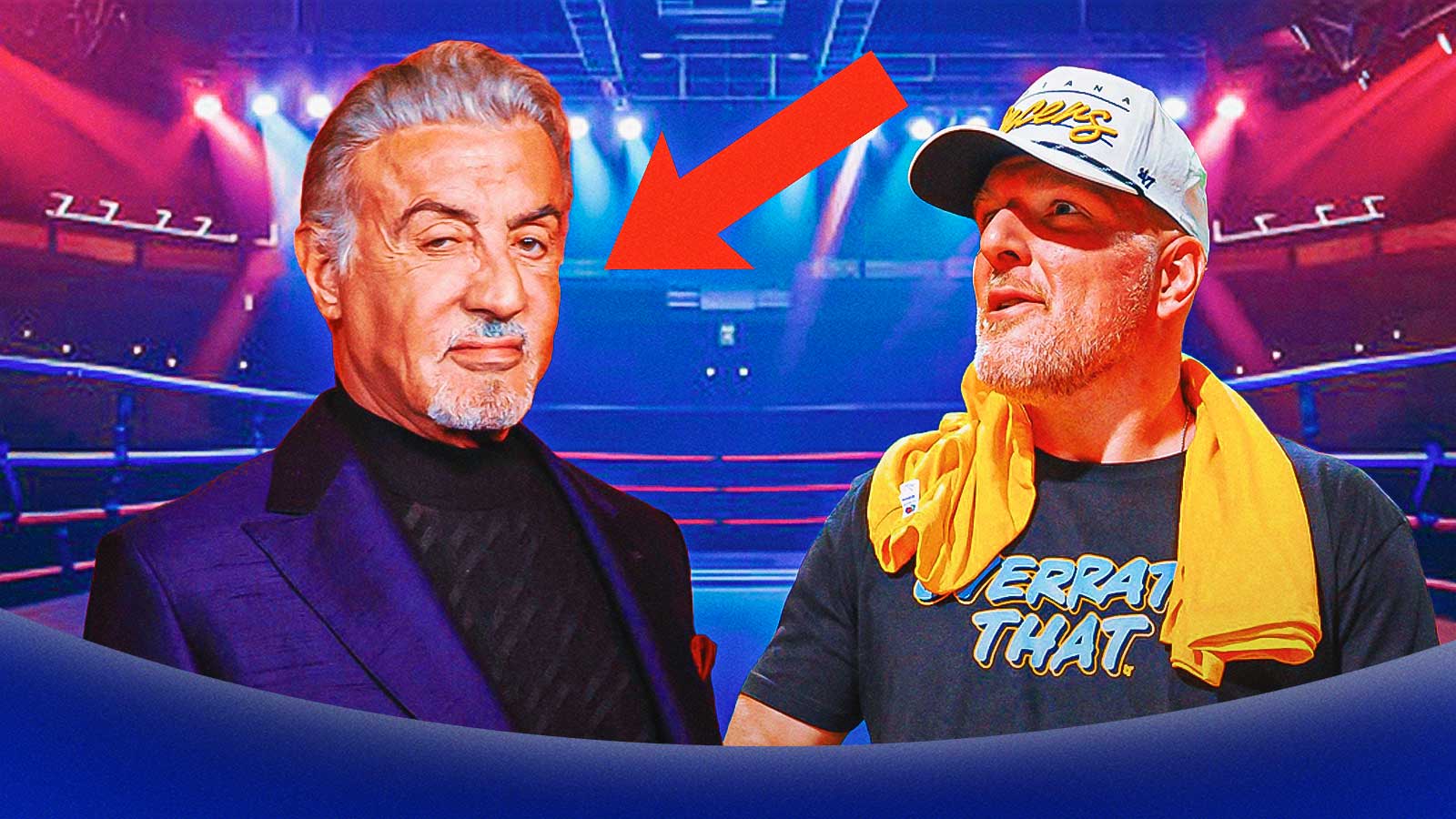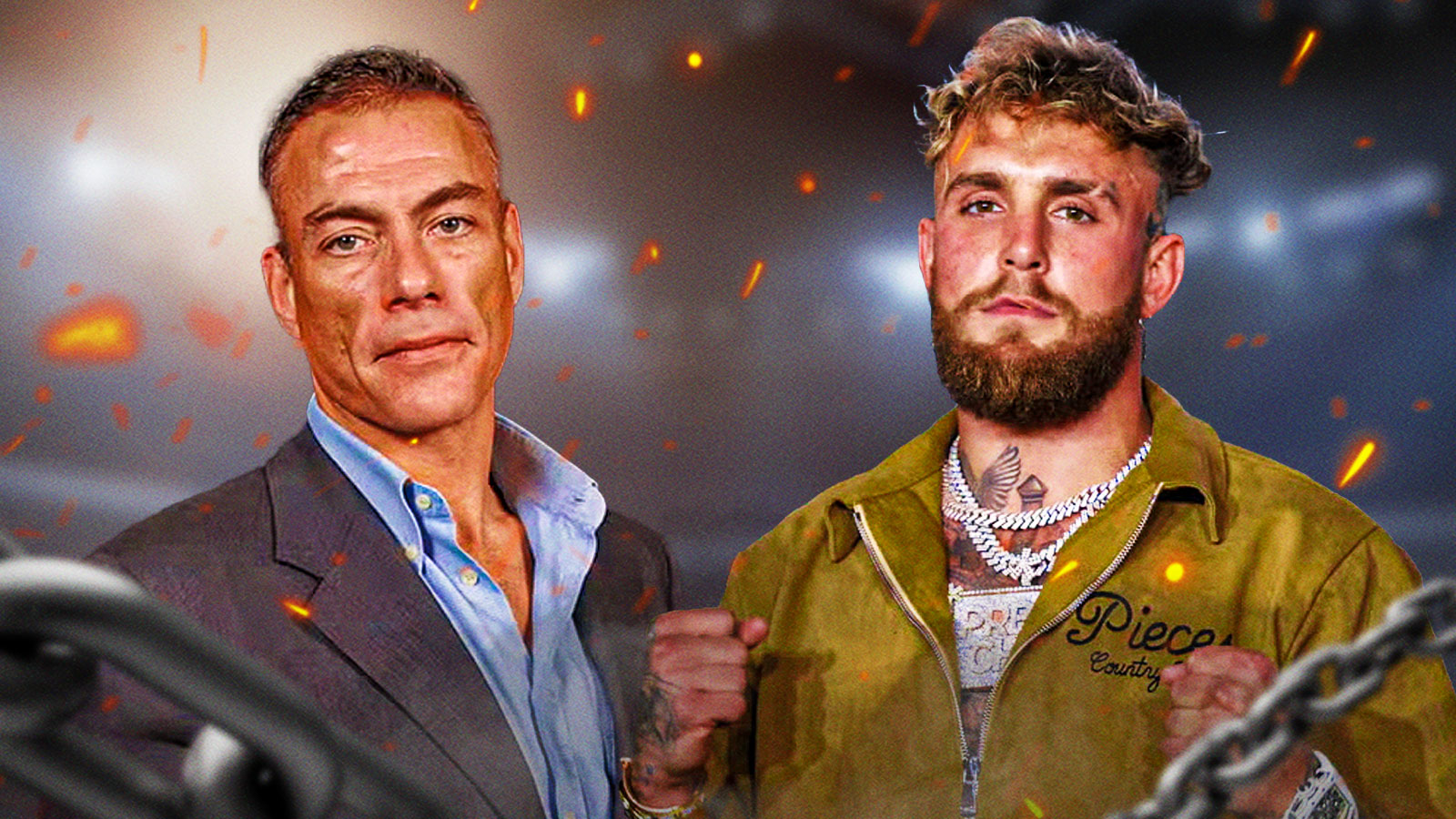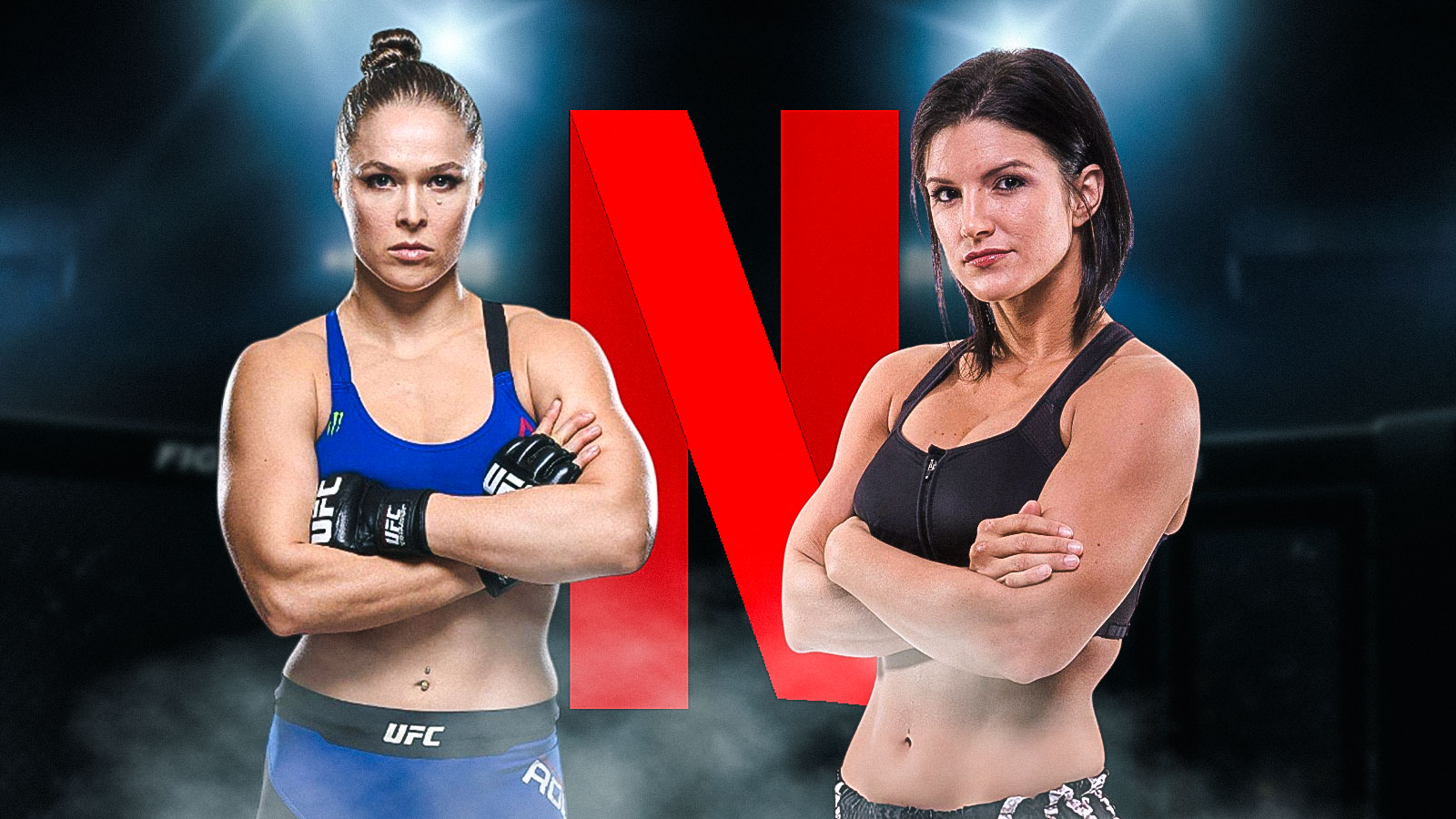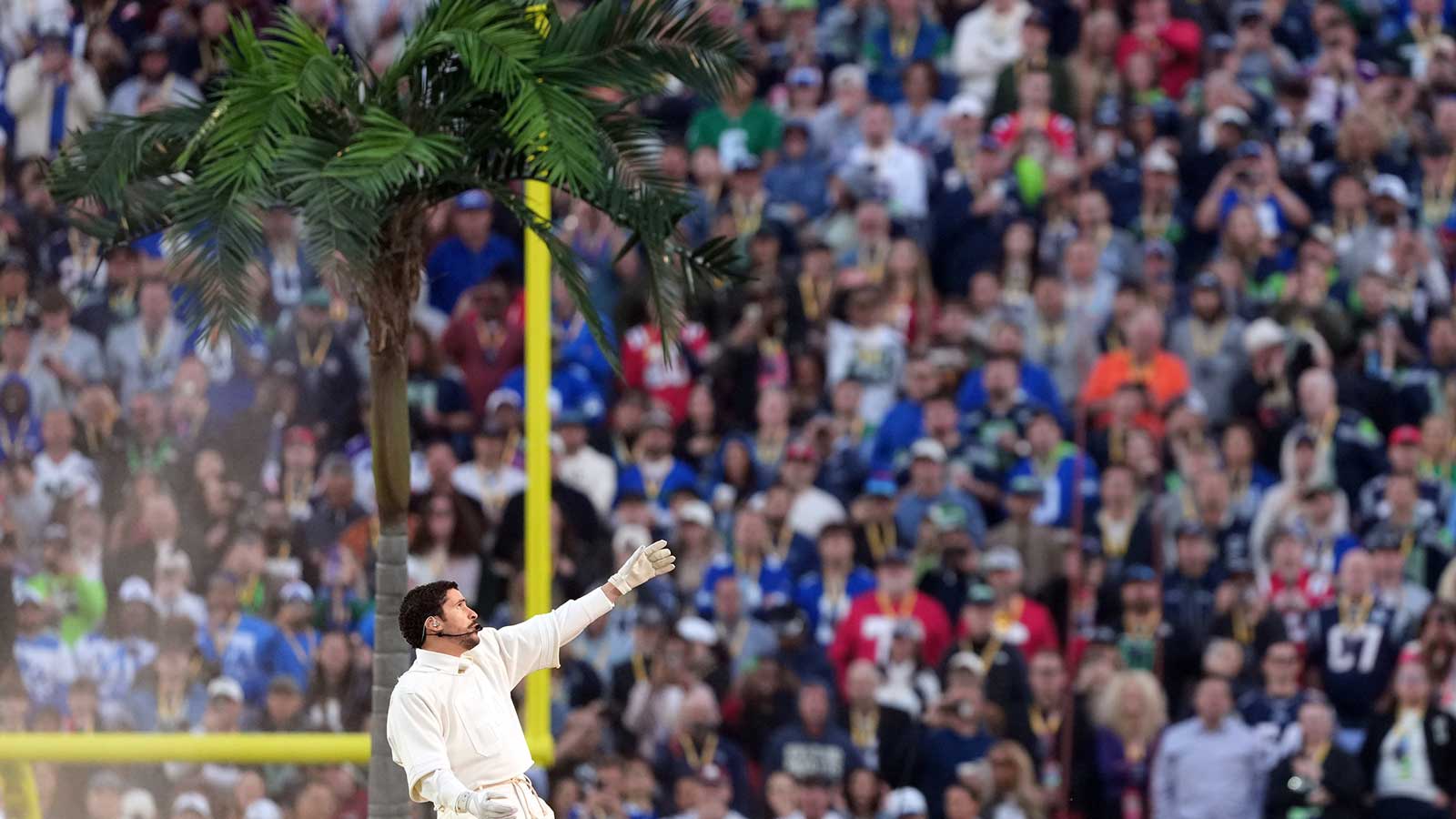Doug Liman's Jake Gyllenhaal-led Road House remake explores the Florida Keys, a reliable, if under-visited, location for searching souls in movies. In Night Moves, Gene Hackman ventures down to investigate a girl's disappearance while escaping a deteriorating marriage. Denzel Washington's troubled chief of police stumbles into chaos in Out of Time. In Harmony Korine's The Beach Bum, Moondog (Matthew McConaughey) trips around, awaiting a creative spark.
Road House review
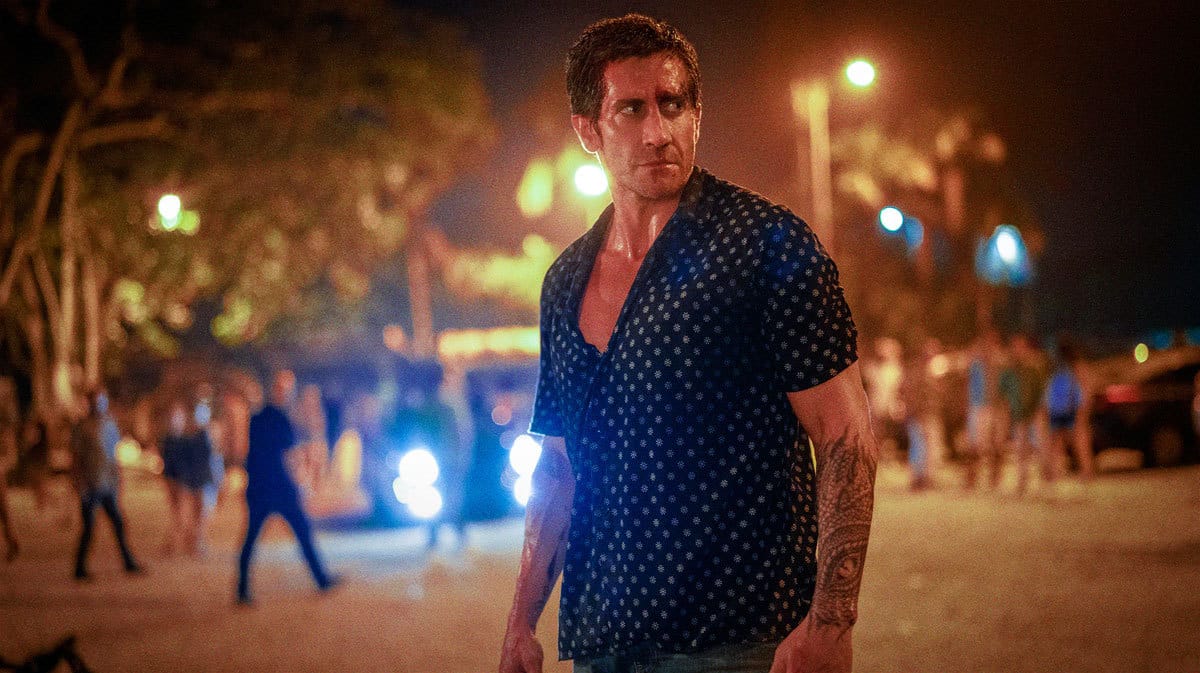
Road House — which pays homage to Florida-set cinema in myriad ways — reimagines Dalton (Jake Gyllenhaal) as a lowkey ex-UFC star seeking a fresh start. Working off a script by Anthony Bagarozzi and Charles Mondry, director Doug Liman (Bourne Identity) updates the 1989 Good-Bad classic starring Patrick Swayze. Instead of dusty Kansas City, we're in the derelict paradise of Glass Key.
In the '89 version, directed by the aptly-named Rowdy Herrington, Swayze’s James Dalton is reckoning with regrettable trauma when he's hired to keep the peace at the grimy roadside bar. The film works, to the extent that it does, and garnered cult status, because of its unironic, authentic badness. Swayze, incapable of seeming bereft of confidence, is acting his pecs off. The movie isn't in on the joke, which makes it all the more charming. Liman's film very much is.
Gyllenhaal's Dalton (renamed Elwood) is preternaturally warm but strategically reserved. He's been drifting around the Sunshine State in hoodies, earning cash in underground fights for eliciting surrenders (from Post Malone, humorously) just by revealing his Southpaw-esque physique (in a nod to the OG film, Liman includes a glistening shirtless beach sequence).
Frankie (Jessica Williams) approaches Dalton about protecting her family's bar, which has an actual name but everyone calls the “Road House” (the remake turns a joke about the term, and lots else, into a dash of recurring meta-comedy). Once on the job, Dalton befriends and mentors the locals/employees (Lukas Gage, Hannah Lanier, Dominique Columbus). As order is restored, the movie dabbles in the feel-good sports-comedy zone.
The Road House's rebound draws the ire of an imprisoned developer's unhinged scion (Billy Magnussen, on 11). As the stakes ostensibly elevate — Dalton becomes embroiled in a convoluted, violent dispute — the plot ceases to matter.
An uneven ride
Liman's pleasing remake juggles modalities, along with Michael Mann homages. There's a swampy neo-noir, a small-town caper, and a video game adaption of a Michael Bay movie — replete with UFC tie-ins, cartoonish heavies, speedboat explosions, and clunky CGI. When Road House traffics in the former two — which smoothly overlap in the first hour — it hums along. The louder it gets, the less alive it feels. Gyllenhaal has thrived in neo-noirs (Nightcrawler, Prisoners, Zodiac), and he appears to be leaning in that direction.
For its brashness, Road House is best when intimate. Deploying his signature handheld style to track Dalton's arrival in town, Liman immerses us into Glass Key's not-quite-off-the-grid community of warm weather and warmer inhabitants (“You think we don't have the internet out here? I know what happened…” one character says, in an unfortunate, exposition-skirting bit of dialogue).
The most captivating moments in the original feature Swayze walking through the joint, surveying the landscape. Same here.
The bar-based fighting is kinetic, and the stunt work is sick (shoutout to stunt coordinator Garrett Warren). Liman remains one of the elite captures of close-quarters combat.
Beachy backdrops are littered with scrap metal and palm trees. The clothes are vibrant and ragged, and the A-frame venue is jaggedy and picturesque. The delightful, diverse array of live music acts adds texture. As if obeying Swayze, the film clearly wants to be nice.
It's obligatorily outrageous, sure — that's the Road House brand, and Joel Silver produced it — but the filmmaking chops are unmissable. In the first half, especially, Liman deftly finds the right blend of considered and silly. It's also when the remake replicates the earnestness of the original.
Conor McGregor's role and a “half-baked” romance
You can feel a gear shift coming. In this case, the vehicle is Conor McGregor. His Knox, a random gun-for-hire, is meant to be the propulsive heel — and McGregor is undoubtedly an exciting fighter. Besides one extended bar-room brawl, though, Knox amounts to pure caricature. In general, the UFC's tacked-on presence acts as a marketing tool unattached from the artistic vision.
A romantic subplot between Dalton and Ellie (Daniela Melchio) is half-baked — Dalton is literally unsure whether a scene between them is supposed to be a date. Ellie introduces an interesting idea about overworked hospital workers in proximity to casual violence, but instead devolves into a plot device.
In general, the movie's commitment to character development and winking wit wanes as it pivots to special effects and set pieces. A jarring near-suicide sequence, for instance, gradually evolves into a sight gag. The last chunk of the 121-minute movie ends up echoing another Florida Keys-set motion picture: 2 Fast 2 Furious.
Should you watch Road House?
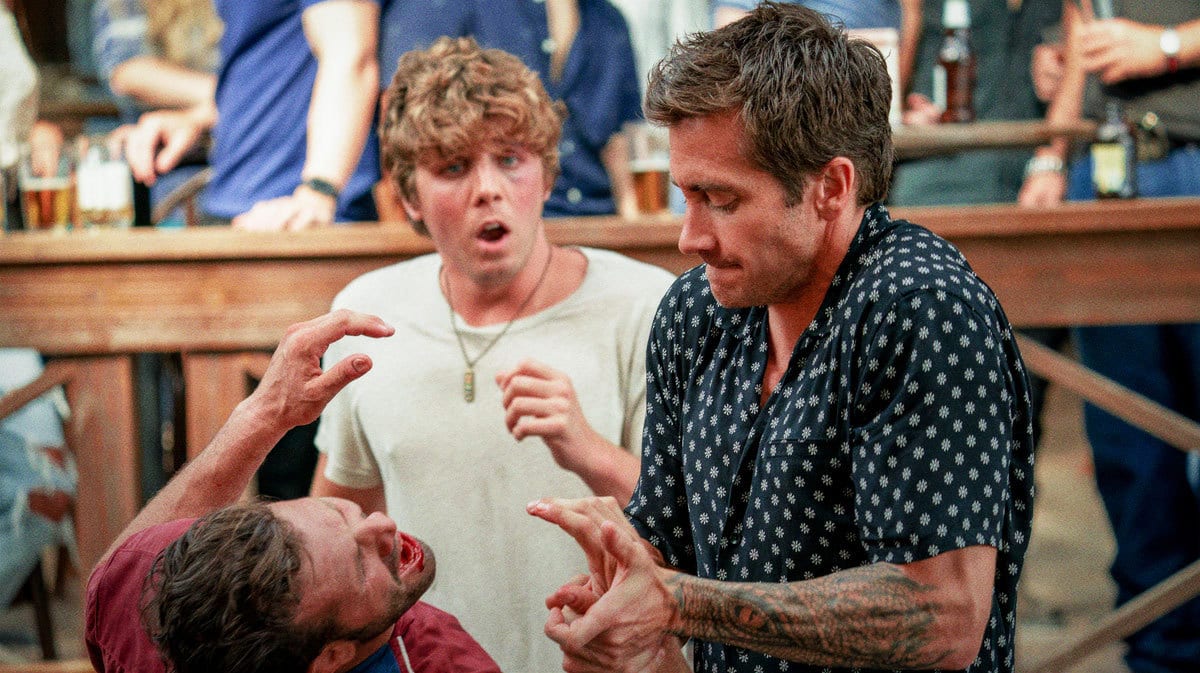
Road House gets bogged down by contemporary action movie tropes: mediocre effects, an unnecessary gimmick (UFC), and oversold self-awareness. For the most part, though, Liman's remake offers a crowd-pleasing blend of positive vibes, pristine location scouting, and an appealing movie star beating up a whole lot of people. And don't worry: There is a gator.
Grade: B
Road House will be released on March 21 on Prime Video.

